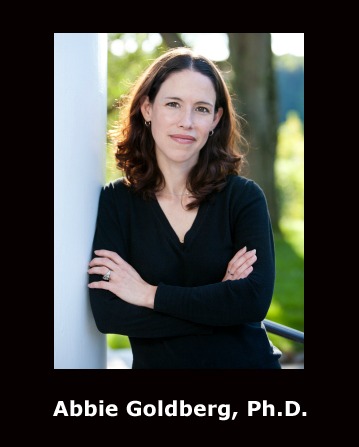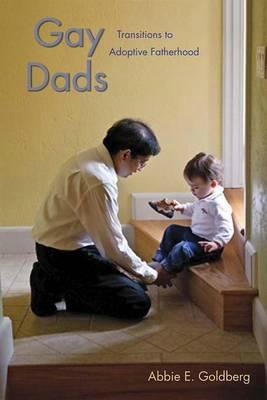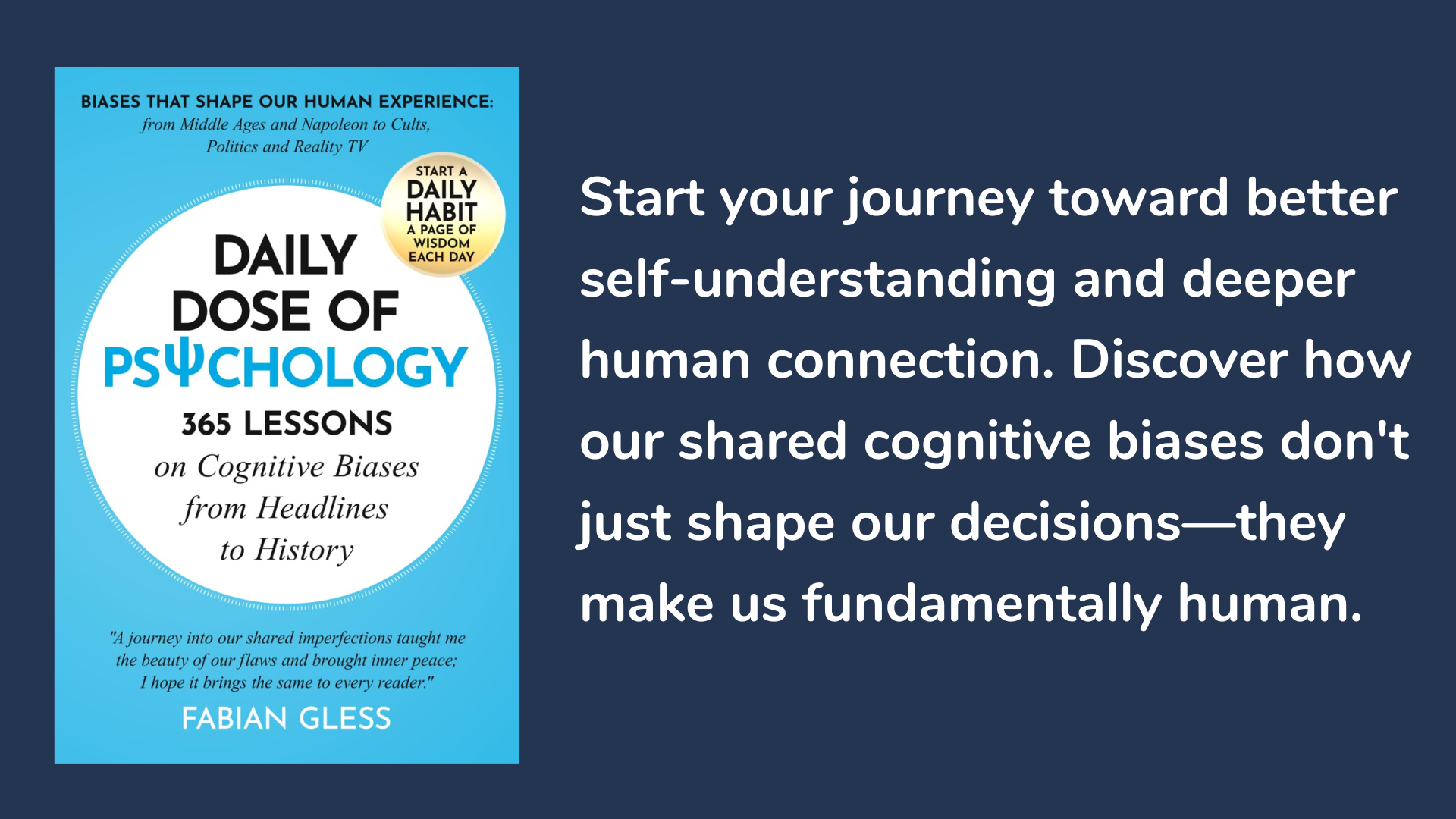Interview With Dr. Abbie Goldberg
Want To Study Psychology?
Abbie Goldberg, Ph.D., is an Associate Professor in the Department of Psychology at Clark University. She received a B.A. from Wesleyan University, and an M.S. and Ph.D. from the University of Massachusetts Amherst.
|
Dr. Goldberg is interested in how a variety of social locations (e.g., gender, sexual orientation, social class) and contexts (e.g., work, family, community) shape processes of development and mental health. Her research focuses on parenthood, relationship quality, and well-being in diverse families (e.g., adoptive parent families, lesbian/gay parent families) in an effort to increase our understanding of family diversity. Specifically, she is currently conducting a longitudinal study of adoptive parenthood in a diverse group of couples. |
Find A Psychology School Near You
|
In addition, Dr. Goldberg is conducting a study of postpartum well-being in women with diverse sexual histories. She teaches courses on gender and families, diversity in contemporary families, research methods with diverse families, human sexuality, and ethics in clinical psychology.
Q & A
Could you tell us something about the Transition to Adoptive Parenthood Project?
The Transition to Adoptive Parenthood Project (TAPP) examines the experiences of same-sex couples and heterosexual couples as they adopt their first child. We interview couples at various points across the transition to parenthood, and beyond. This study focuses on unique challenges and joys that couples face as they prepare to adopt, and then adopt, their first child, as very little is known about couples’ experiences during this important life transition. We also explore a variety of topics in our interviews with couples, including: adoption agency experiences; the division of labor; balancing work and family; perceptions of social support from family and friends; intimate relationship quality; ideas and feelings about becoming an adoptive family; and choosing a day care/school.
What factors are most strongly linked to well-being in diverse families?
Individuals and couples tend to have better mental health when they have high levels of social support, are satisfied with their intimate relationships, have good coping skills, and perceive low levels of stigma (e.g., related to adoption and/or their sexuality) in their environments.
You teach a course on the ethical issues faced by clinical psychologists. What are the main issues they face?
The course addresses a wide range of issues, including: multiple relationships/boundary challenges; competency; confidentiality and informed consent; navigating tensions between law and the APA Ethics Code; and a variety of other issues. Clinical psychologists, whether they are in research, academia, or clinical settings, face a variety of challenges and issues, but one particularly prominent one is how best to protect and safeguard the rights of the populations whom they serve.
Your Psychology Today blog is called Beyond Blood. What was the thinking behind this title?
The blog focuses on highlighting contemporary issues and research pertaining to families that exist beyond the heterosexual, nuclear family standard: gay families, adoptive families, and so on. Lots of families are formed in ways that go “beyond blood,” and the meaning of family certainly extends “beyond blood.”
Tell us about your latest book - Gay Dads: Transitions to Adoptive Fatherhood.
The book examines the experiences of 70 gay men as they transition to adoptive fatherhood. Gay men’s fathering experiences have been vastly understudied, so this book represents an intimate and intriguing look at their experiences, challenges, and joys. It so happens that when gay couples become parents, they face a host of questions and issues that their straight counterparts may never have to consider. How important is it for each partner to have a biological tie to their child? How will they become parents: will they pursue surrogacy, or will they adopt? Will both partners legally be able to adopt their child? Will they have to hide their relationship to speed up the adoption process? Will one partner be the primary breadwinner? And how will their lives change, now that the presence of a child has made their relationship visible to the rest of the world? This book addresses these, and many other, questions and issues.
Gay Dads: Transitions to Adoptive Fatherhood is included as part of a series of books showcasing qualitative studies in psychology. What are the major strengths of conducting qualitative research?
A major advantage of conducting qualitative research is its potential for providing insight and understanding into an understudied phenomenon – like gay men’s transition to parenthood. Conducting qualitative research allows a more in depth and nuanced look at people’s lives than quantitative data often allows. It yields lots of data – which often give rise to new questions which can be pursued in future quantitative, or qualitative, research.
Do you have any best practice tips for someone who has to conduct an in-depth interview?
When I design a set of interview questions, I always expect them to change. I typically show them to a few colleagues, revise them, and then test them out in “the field.” After a few participant interviews, I always make changes to the interview questions – changing the wording, adding follow-up probes, etc. Sometimes questions just don’t work, and so I get rid of them. Sometimes participants bring up issues that I never anticipated – and then I design a new interview questions to get at that phenomena. Going into an interview with an open-mind, and the expectation that your participants will teach you things that may require you to change your thinking (and interview questions and style) on a topic, is more fruitful than going in with a rigid set of research questions and corresponding interview questions.
What advice would you give to someone hoping to pursue an academic career in psychology?
Get a diversity of experiences. Volunteer and/or work in multiple research labs, to find out if research is really for you – and, further, what type of research is for you. Are you drawn towards social psychology, clinical psychology, developmental psychology, or something else? Do you enjoy qualitative or quantitative research? Do you enjoy gathering data yourself or working on a team project? Learning the answer to these questions, and more, will help you focus your interests and get the most out of your experiences. Additionally, finding one or more mentors who can support you during this process, and serve as a model for how to be a successful academic psychologist, is crucial.
Essential Reading
Book Description
In Gay Dads: Transitions to Adoptive Fatherhood, Abbie E. Goldberg examines the ways in which gay fathers approach and negotiate parenthood when they adopt. Drawing on empirical data from her in-depth interviews with 70 gay men, Goldberg analyzes how gay dads interact with competing ideals of fatherhood and masculinity, alternately pioneering and accommodating heteronormative “parenthood culture.”
The first study of gay men's transitions to fatherhood, this work will appeal to a wide range of readers, from those in the social sciences to social work to legal studies, as well as to gay-adoptive parent families themselves.
See following link for full details.
Gay Dads: Transitions to Adoptive Fatherhood (Qualitative Studies in Psychology)
Recent Articles
-
Self, Consciousness, and Being: The Transcendent Perspective
Feb 21, 25 10:26 AM
Discover Self, Consciousness, and Being: The Transcendent Perspective, a deep exploration of self, consciousness, and the ideal human experience. -
Only Great Psychology Books Make It On To This Page
Feb 21, 25 10:15 AM
Welcome to The All About Psychology Book page. Only the best, most fascinating and most compelling psychology books will be featured here. -
Daily Dose of Psychology
Feb 19, 25 06:50 AM
Start your journey toward better self-understanding and deeper human connection. Discover how our shared cognitive biases don't just shape our decisions—they make us fundamentally human.
Go To The Psychology Expert Interviews Page







New! Comments
Have your say about what you just read! Leave me a comment in the box below.